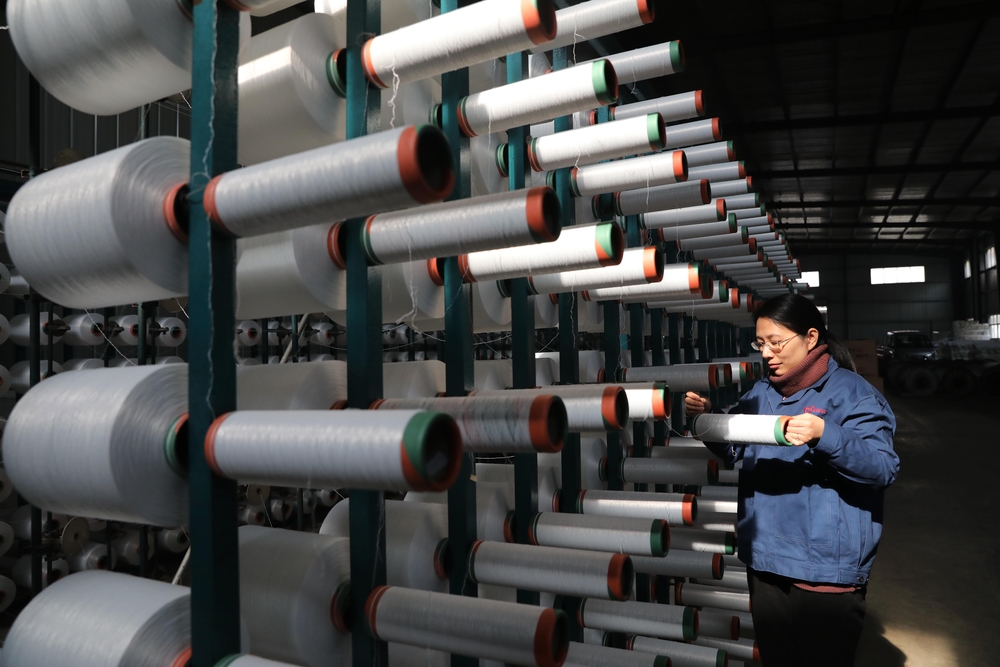
On October 17, China reported that GDP growth in the country came in at 6%. This was below the 6.1% growth that was being estimated. Stocks initially dipped on the news, but have since bounced back. Reports out of China say that the downward revision was triggered by “the effects of escalating tariffs and weakening internal demand”.
The International Monetary Fund (IMF) chimed in with more negative news. According to the IMF, the rate of growth for Chinese GDP will continue to slow into 2020. That is a downward revision of 0.3% from a report that the IMF released six months prior.
Is the trade war to blame for declining Chinese GDP growth?
The fact that the number came out approximately after a week after the “trade truce” between the U.S. and China adds context to the number. The Trump administration views the downward revision as evidence that the ongoing trade war is having a larger effect on the Chinese economy than that of the U.S. economy.
However, economists are conflicted about what is really causing the decline in GDP growth. According to Jennifer Lee, senior economist and director of economic research at BMO Capital Markets, the trade war may very well be to blame.
“China is still reliant on trade, even though exports as the share of the economy has declined,” said Lee. “The tariffs that the U.S. has imposed on China’s goods that cross over the Pacific are hurting those industries.”
Lee also points out that the retaliatory tariffs that China placed on American agricultural products such as pork and soybeans have tamed Chinese demand.
The trade war is part of it, agreed Louis Kuijs, chief Asia economist at Oxford Economics, but only a part. “China’s economy has been impacted by serious headwinds, especially stemming from slower global trade, the U.S.-China trade war and the effect that has on the appetite to invest.”
Kuijs said that the service and consumption sector has been robust in relative terms. According to Kuijs, growth in that sector has slowed down less than other parts of the economy. For example, Kuijs notes, according to the latest reports the retail sector grew by 8.2% compared to last year.
According to Kuijs the fact that household consumption is still only around 38% of GDP, the growing retail sector is not enough to offset the effects of the trade war on the Chinese economy which is an explanation for the slowdown in overall growth.
Why does slowing Chinese GDP growth matter to U.S. investors?
China’s decline in GDP growth matters to U.S. investors because it could imply that the Chinese consumer is slowing down on spending. Just as consumer spending is a significant driver of GDP in the United States, the same is true of China. For decades, many U.S. companies have relied on access to the Chinese consumer as a growing market for their products and services.
With the economies of Europe and Japan already slowing, U.S. companies have been able to rely on Chinese consumer spending even as consumer spending in the United States remains strong. However, if Chinese consumer spending was to slow down, it may affect the growth prospects for many of these U.S. companies.
Why the slowdown in Chinese GDP growth may not matter
Carl Weinberg, the chief international economist at High Frequency Economics, points out that in comparison to the rest of the world, China’s 6% growth rate is not cause for alarm. And in fact, says Weinberg, “It seems to us that in a world where average GDP growth is barely over 3%, China’s growth rate of 6% is not too shabby.”
Weinberg noted that the GDP report did contain positive news. For example, the monthly figures for industrial production and electrical production were up 1.6% and 4.7% respectively. Both of these may be signs that the Chinese economy may be recovering.
China’s economy defies easy explanations
China is a manufacturing economy. In the past, economic growth has been boosted by infrastructure investment in what some will say are “ghost cities”. To that end, the Chinese government is pledging to undertake more stimulus into the economy. And many China skeptics point out that it’s difficult to get accurate data to confirm the Chinese numbers.
In addition to infrastructure projects, the Chinese government is pledging to take measures that will encourage a shift to consumption and technology (which contributed 60.5% to GDP growth in the first three quarters).
Julie Wang, a senior Greater China economist for HSBC, said the Chinese government will likely take measures to lower interest rates and increased government spending as a result of the declining growth.
Before you make your next trade, you'll want to hear this.
MarketBeat keeps track of Wall Street's top-rated and best performing research analysts and the stocks they recommend to their clients on a daily basis.
Our team has identified the five stocks that top analysts are quietly whispering to their clients to buy now before the broader market catches on... and none of the big name stocks were on the list.
They believe these five stocks are the five best companies for investors to buy now...
See The Five Stocks Here
Click the link below and we'll send you MarketBeat's list of seven stocks and why their long-term outlooks are very promising.
Get This Free Report